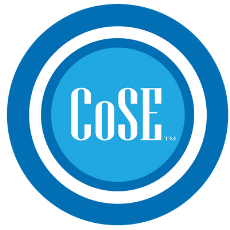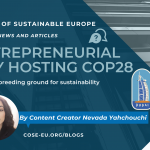Written by: Nevada Yahchouchi
Reading time: 5 minutes
Arab Health 2023 – Dubai
Arab Health, one of the world’s largest medical conferences, annually brings the global healthcare industry to Dubai. Attendees include healthcare experts, influencers, dealers, distributors, and representatives from government entities. This event serves as a comprehensive platform for discussing and demonstrating the latest developments in healthcare, with a pronounced focus on innovation. It offers numerous opportunities for healthcare professionals to update their knowledge and expertise.
Arab Health sees the realization of significant healthcare deals and fosters dialogue among major industry players. Sales and business development professionals converge to expand their product and service portfolios, while purchasing and procurement professionals stay abreast of innovative products and secure optimal deals after negotiations with manufacturing companies.
The exhibits at Arab Health encompass medical equipment and devices in disposables and consumer goods, imaging and diagnostics, wellness and prevention, healthcare and general services, healthcare infrastructure and assets, IT systems and solutions, orthopedics, physiotherapy and rehabilitation, and healthcare innovation. The event also honors innovation and achievements in several categories, including radiology, surgery, laboratory work, patient-centered care, and clinicians through its awards.
How does the European Union work together in the Arab healthcare sector?
The European Union (EU) collaborates with various regions worldwide, including Arab countries, to promote health and well-being. The EU’s engagement in the healthcare sector of Arab countries usually focuses on several dimensions:
- Bilateral and Multilateral Partnerships: The EU often forms partnerships with individual Arab countries or regional organizations like the Arab League. These partnerships encompass areas like health system strengthening, disease prevention, and health infrastructure development.
- Development Aid and Financial Assistance: Through its instruments like the European Neighbourhood Policy (ENP) and the Development Cooperation Instrument (DCI), the EU provides financial aid to support health projects in Arab countries. This might include funding for hospital construction, medical training, or disease eradication campaigns.
- Technical Assistance and Capacity Building: The EU provides expertise and know-how to Arab countries, helping them modernize and improve their healthcare systems. This could be in the form of training for healthcare professionals, health policy advising, or sharing best practices.
- Research and Innovation Collaboration: Programs like Horizon 2020, which is the EU’s flagship research initiative, often include collaboration with non-EU countries, including those in the Arab region. Such collaborations can address global health challenges or promote innovation in healthcare.
- Trade and Regulatory Cooperation: The EU negotiates trade agreements that sometimes include provisions related to healthcare goods and services. These agreements can facilitate access to medicines, medical devices, and other health-related products. The EU might also work with Arab countries to ensure that health and safety standards are met for products entering the EU market.
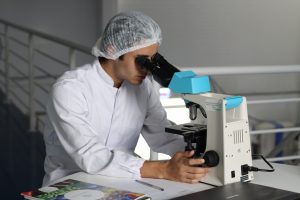
Why Arab health is more than a conference
The event has evolved into a hub for advanced medicine, seamlessly intertwining technology, investment, and innovation.
At the Arab Health conference in Dubai, an MRI scanner showcased by GE Healthcare stands out. This device consumes 80% less helium—a non-renewable resource—compared to other models. Photo by Chris Whiteoak, The National.
Back in 1960, when Abu Dhabi inaugurated its very first hospital, it would have been hard for its medical staff and patients to envision the path the nation would embark on, ultimately emerging as a regional health powerhouse.
The Oasis Hospital in Al Ain – initially a four-room clinic in a building donated by UAE Founding Father, the late Sheikh Zayed – was set up by US doctors Pat and Marian Kennedy. It would later be renamed the Kanad Hospital after the local pronunciation of the couple’s surname.
They tended to villagers and isolated communities whose lives had been affected by a lack of health care. Blindness and glaucoma from blowing sand were common, and it was estimated that up to half of all Emirati infants and a third of mothers died during childbirth, or related complications.
In just a few decades, the UAE has left that hardship far behind to become a hub for cutting-edge medicine and a place where doctors, investors and governments come together to find 21st-century solutions to a new set of health challenges.
As part of that journey, more than 3,000 exhibitors from 70 countries are taking part in the annual Arab Health conference in Dubai. It is has become a flagship event for the heath sector – and one that offers plenty of reasons to be optimistic.
HIV Example
HIV, a disease that disproportionately impacts the developing world, might soon become history. The likelihood of discovering a cure is “quite high,” said Prof. Sharon Lewin, Director of the Peter Doherty Institute for Infection and Immunity in Melbourne, during the event.
Innovations in artificial intelligence could also hold the key to combating other diseases. On the day Mohamed bin Zayed University of Artificial Intelligence celebrated its inaugural batch of graduates, Ashish Koshy, CEO of the UAE’s G42 Healthcare, emphasized how the healthcare sector realized the importance of data-driven decisions during the pandemic.
This technological advancement has become crucial. Concurrently, the Red Cross issued a report warning of a potential new pandemic on the horizon, starkly noting that many governments remain “dangerously unprepared.”
While pandemics are a significant concern, the challenges posed by climate change and environmental degradation are equally pressing. Research from the journal Nature Climate Change last August revealed that approximately 58% of the 375 infectious diseases humanity faces have been exacerbated by climate change at some point.
At the Arab Health event, Hady El Khoury of GE Healthcare emphasized that sustainable practices are the only viable option for healthcare providers. “A clean environment and a healthy world are intrinsically linked,” he stated.
Arab Health has emerged as the premier platform to present sustainable healthcare solutions and eco-friendly medical technologies, exemplified by GE Healthcare’s MRI scanner. These cutting-edge innovations contribute significantly to Arab Health’s economic success, with deals totaling Dh2.8 billion ($762.3 million) concluded during the previous year’s gathering.
At the event’s inauguration, Sheikh Mohammed bin Rashid, Vice President and Ruler of Dubai, articulated the UAE’s vision: “Our objective is to establish a dynamic global healthcare hub that addresses not only our nation’s needs but also the increasing demands of our expansive region.”
From its earliest healthcare establishments to its current status as a beacon for trailblazing medical care, the UAE’s journey underscores the benefits of deliberate and sustained investments in health infrastructure, education, and training.
“Arab Health cultivates an exceptionally business-conducive atmosphere, fostering invaluable face-to-face connections. Attendance has already bounced back to pre-Covid figures. There’s a discernible uptick in emphasis on medical education and peer learning in recent editions—a trend set to persist. Within our ABHI UK Pavilion, the Surgical Simulation Theater grants clinicians and providers an unparalleled platform to demonstrate state-of-the-art procedures and surgical methods to an international audience.”
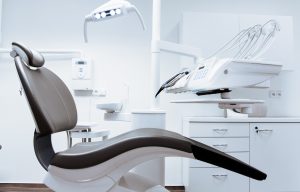
The Dubai Healthcare City (DHCC) is the world’s largest medical free zone. (Credit: DHCC)
Michelle Michelucci noted:
“Over the past twenty years, there’s been a marked emphasis on healthcare in Dubai and throughout the broader Middle East. The region has shown a strong inclination towards acquiring top-tier healthcare. Given the area’s significant population and the rising number of patients, the increasing demand for healthcare is evident. It’s understandable why numerous global medical producers and health technology vendors are keen on expanding their footprint here.”
Furthermore, Dubai boasts the world’s most expansive dedicated medical zone, the Dubai Healthcare City (DHCC), founded in 2002. This zone collaborates with 160 clinical entities, ranging from hospitals and outpatient centers to diagnostic labs, spanning over 150 disciplines. It features licensed experts from nearly 90 nations.
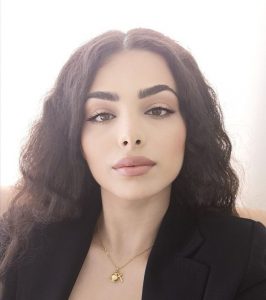
Nevada Yahchouchi Content Creator: International Business
Nevada is a young professional passionate about Enterpreneurship, women empowerment and human rights. She holds a bachelor’s degree in Economics and a Master’s degree in International Economics and finance at the Lebanese University. In her organisation role she contributes to Enterpreneurship, business and youth empowerment, in particular to the achievement of the UN sustainable development goals. She joined CoSE in 2022 as a content creator to write articles about these topics in order to raise awareness and bring her generation closer to the idea of creating the life they want, make them part of active change and pushing them to embark on the journey to feel passionate about.
